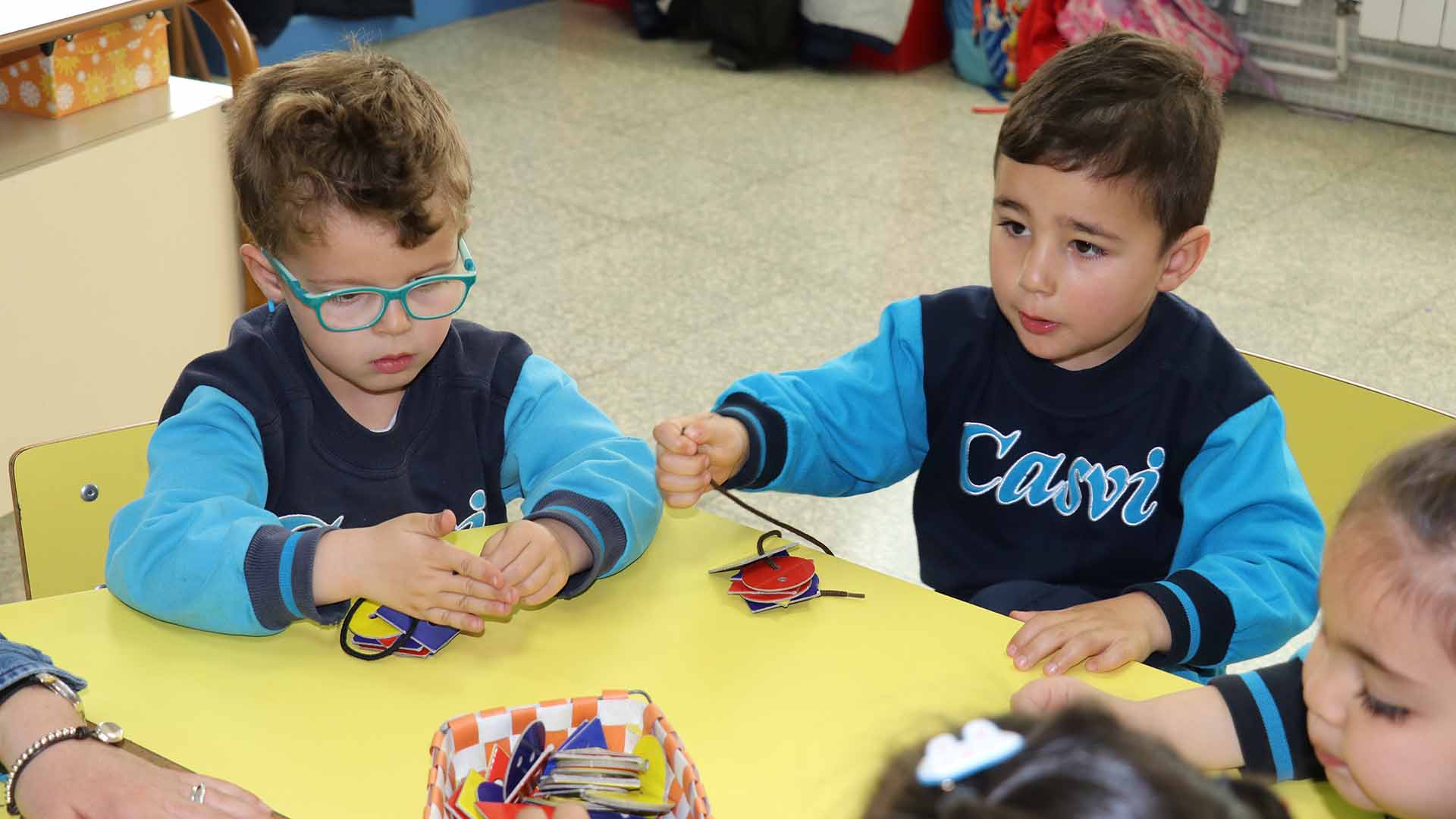We live in a society where quick thinking is no longer enough: it is now necessary to think well. In this context, logical thinking becomes a fundamental competence for children to develop a critical, structured and problem-solving mind. And yes, logical thinking can be trained.. At Casvi Villaviciosa we know how to do it.
ARE THEY READY TO THINK FOR THEMSELVES?
Many parents wonder whether their children will be able to solve problems without always relying on adults. This concern is more common than it seems, especially when faced with more complex schoolwork or everyday decisions that require analysis, comparison or organisation.
The traditional education system, based on memorisation and repetition, often leaves no room for developing this key skill: logical thinking.
CONSEQUENCES OF NOT STIMULATING LOGICAL THINKING

Ignoring this competence during childhood has effects that go beyond the academic sphere:
- Children who are easily frustrated by not finding quick solutions.
- Difficulties in approaching problems from different angles.
- Obstacles in STEAM subjects (Science, Technology, Engineering, Arts and Mathematics).
- Weak reasoning skills when making decisions.
An MIT study highlights that children who develop logical thinking skills from an early age do better academically and are better able to adapt to changing environments.
HOW TO CULTIVATE LOGICAL THINKING FROM AN EARLY AGE
Logical thinking is not activated by a theoretical lesson. It is trained through daily practice, in a cross-cutting, playful and experiential way. At Casvi Villaviciosa we achieve this through five keys that we apply from the Infant stage:

INQUIRY-BASED LEARNING: IB METHODOLOGY
As an IB accredited school, we encourage inquiry-based learning. Students learn to investigate, look for causes and consequences, analyse options and reach their own conclusions. This approach is aligned with the IB Primary Years Programme (PYP) model of thinking.
TRANSDISCIPLINARY PROJECTS
From Preschool Education onwards, children work on projects that integrate maths, language, art, science and emotions. Example: a project on “the supermarket” where they have to classify products, organise budgets or measure quantities. In this way, logical thinking is trained through play, observation and experimentation.
LOGIC GAMES AND CHALLENGE SOLVING
We use materials such as building blocks, puzzles, sorting activities, visible thinking routines and age-appropriate robotics (e.g. Cubetto) that reinforce sequencing, cause-effect and planning skills.
AUTONOMY TO MAKE DECISIONS
Learners are encouraged to plan their work, to make simple decisions in the classroom and to evaluate their own actions. This autonomy strengthens their reasoning, and helps them to anticipate consequences and solve everyday problems.
CONTINUOUS FORMATIVE EVALUATION
Daily observation, self-assessments and constant feedback allow us to adjust the educational approach to the pace of each child, ensuring that all children develop their logical thinking in their own way.
AT CASVI VILLAVICIOSA, LOGICAL THINKING IS BUILT STEP BY STEP.
At Casvi Villaviciosa International School, we work every day so that our students learn to think, to solve problems and to connect ideas. We are part of the worldwide network of IB schools, which allows us to offer an international, innovative and rigorous education based on enquiry, critical thinking and holistic development.
And we do it from the First Cycle of Preschool. Because the earlier you start, the more solid the foundations of logical thinking will be in your academic and personal future.
Do you want to know how we develop logical thinking from the age of 2? Ask for more information about our IB methodology applied to Infants.
“I think, therefore I am”.

